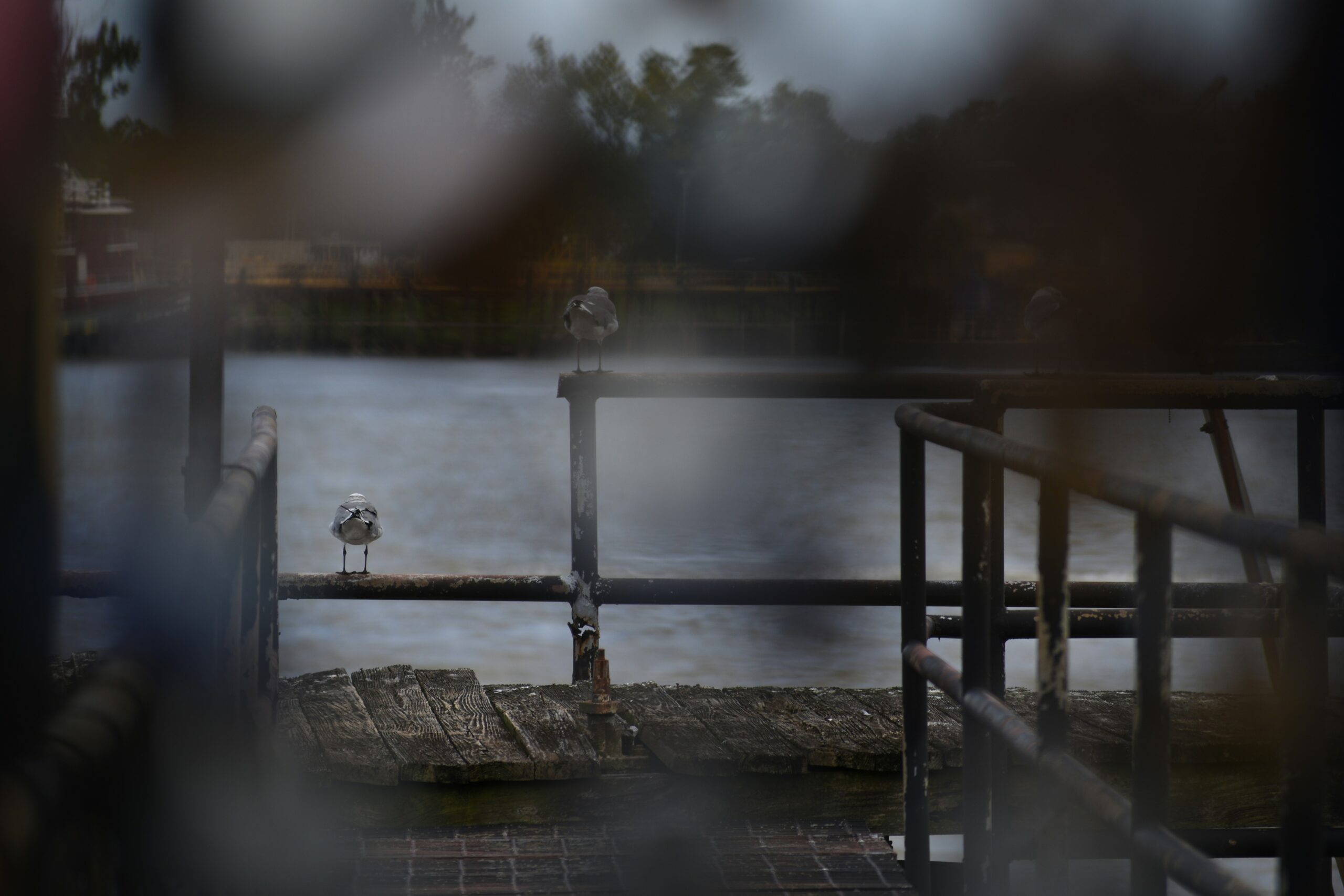In Low Bone Parish, the water don’t knock. It just rises. Quiet at first, like breath
held too long. It slicks along the bayou’s edge, kisses porch steps, then swallows
whole towns without a word. Folks call it a natural disaster. But the women on our street
know better.
“The water comes when the women stop singing,” Nana always said, voice soft as
river moss.
That year, the river came early, slinking in through cracked windows and dreams. Mama said
it was just a storm. Said the levees would hold. Told us not to speak my sister’s name near
the door. As if names invited things in. But Nana just rocked slow on the porch, humming
a song with no words, just sound passed down from throats long turned to dust.
Then came the morning my sister disappeared.
She was eight.
Wore her yellow dress, the one with the ruffled sleeves that made her look like joy
pressed into cotton. She danced around the kitchen that morning, humming
to herself, sticky with syrup and sun. By noon, she was gone. The search party came
late and left early. Sheriff Jenkins said it was the current. Said little girls shouldn’t
be out near the water. As if that river weren’t stitched into our veins, baptized
into our bones. All they found were her shoes neatly placed side by side at the edge
of the marsh. Filled with mud. Like she’d stepped out of them and floated up.
Mama didn’t cry for two days. She just scrubbed the same floorboard over and over,
like she could erase the silence. Like grief was dirt that could be wiped away.
“She ain’t coming back,” Mama whispered on the third day. “That water took her.”
“No,” Nana said. “That water called her.”
Mama turned, eyes wild, face hollowed out like something eaten by time. “Don’t
start with that, Ma. Not now. Don’t bring your stories into this.”
Nana stood, slow and sure, like roots straightening themselves. “You forget what
you come from. You forget what we know. That girl didn’t drown. She got summoned.”
That night, I couldn’t sleep. My sister’s laugh
kept skipping across the floorboards. I
swore I heard her tapping on the window, soft like rain. I dreamed of her
underwater, skin glowing like moonlight on moss. And I woke with her name in my
mouth. I told Nana I wanted to find her. She didn’t flinch. Just pulled a small pouch
from under her apron—dried rosemary, a lock of my sister’s hair, a piece of rusted iron.
“You take this and walk barefoot,” she said.
“The river don’t hear shoes.”
Mama blocked the door.
“You really gonna let her walk into that thing?” she asked. “Let her be next?”
“I’m letting her remember,” Nana said. “We all forgot too much.”
The river felt warm, like it recognized me. It parted soft around my ankles,
whispering in a voice I almost knew. I walked deeper, Nana’s pouch pressed against
my chest. The water rose to my waist. Then my shoulders. Then everything else
went quiet.
Down there, the current spoke in hums and hushes. I saw women floating with their
eyes closed and their mouths open, singing songs with no sound. Girls twirled
through the silt, their dresses trailing like jellyfish, glowing in colors I don’t have
words for.
I saw her.
Not exactly her. But her shape. Her light.
She looked back at me with those big eyes of hers, and for a second, the water
stopped moving. She didn’t speak, but I heard her.
“I’m not afraid of ghosts. Just people.”
Then she smiled, kissed my hand, and the current pulled her gently into the dark.
When I came up, the moon had shifted. I don’t know how long I was gone. Nana was
waiting at the edge of the porch, a blanket in her arms. She wrapped me in it and held me without asking questions.
Mama came out a few minutes later. Her eyes met mine, full of something raw and wordless.
“You see her?” she asked.
I nodded.
And finally, Mama broke. She sank into the steps, her sobs folding into the night
like thunder after the flash. Nana sat beside her, their shoulders touching, not speaking,
not needing to.
The next morning, we sang.
Me. Nana. Mama.
We sang her name like a hymn, like a warning, like a door that still remembers how
to open. Let it stretch through the trees and over the water. Let it echo back.
And the river
for once—
listened.

